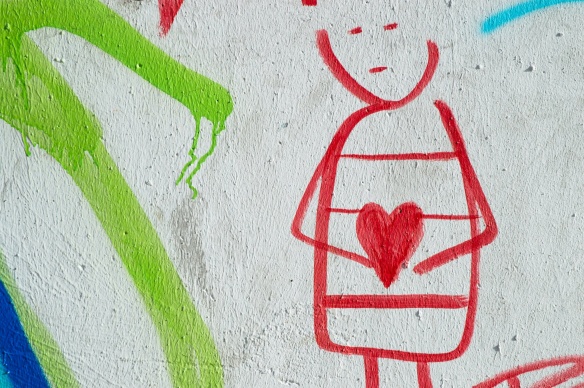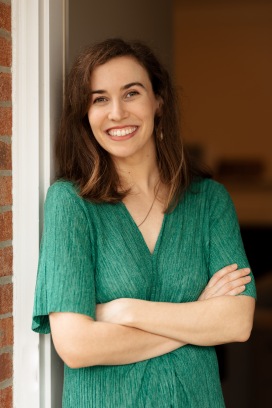Learning Mindsets and How Wounds Can Teach: Guest Post by Kendra Bell
I recently had the privilege of featuring on my blog this wonderful post from Kendra Bell. A lesson in compassion, kindness, and how words we use can hurt and heal. Words matter. It is an important lesson that is especially useful as we head into another school year. Here's Kendra:
Let me tell you a secret. Our childhood wounds can be our greatest strengths.

Across the table from him, I sorted through what to say. I was a first-year teacher. I’d worked tirelessly with parents, administration, and students to create a safe, positive learning environment. And yet my students were like fireworks. Each one unique and beautiful on their own — but together — dynamite. A terrible mix of clashing personalities. Hardest of all, I couldn’t fix the emotional pain that many kids brought to school each day. Some days, I felt like I was drowning under their needs, unable to be the teacher-mom-social-worker-pyschiastrist-special-education-counselor-nurse-friend that they so desperately needed.
I was honest. “Yes, it’s true — many of your daughter’s classmates say mean things. I don’t think they often realize the impact of their words. Some have a lot of emotional pain. It comes out at school in teasing, gossip, or leaving other kids out of games.”
“But this is only 2nd grade … they’re still so young.”
“They are,” I agreed. I didn’t mention that the year before I’d student taught in a duel-language school. Our supporting Spanish teacher had unexpectedly passed away, and some of his students believed they’d killed him. With their words. What a heavy lie for a kid to carry. So let’s just say, that experience shook any naivety out of me that kids didn’t get sassy or mean before puberty.
“But she’s happy…” the father continued, sharing that his daughter was doing well despite what she heard around her. That was a relief. But as our conversation ended, my gut still sank with failure. I so badly wanted all of my students to be kinder and happier. How?
Then one day, a teacher-friend gave me a life-changing lesson plan.
What about Bob?

A paper cut out of our classroom friend, Bob.
I cut out a big person shape out of butcher paper one morning. As my students gathered around for morning circle time, I put the cut-out right in the middle of the carpet. “This is Bob. Everyone, say, ‘hi Bob!’”
Some kids laughed and waved, others rolled their eyes.
“Let’s say some means things to Bob,” I instructed, snapping the cap off a marker. “Who’d like to go first?”
Silence. My students gaped at me, wondering if I was joking.
“I’ll start first,” I said. “Bob, I think you’re ugly.”
Then I ripped the corner of his foot. Just a little.
The classroom gasped.
“Who’s next?” I asked.
One kid timidly raised their hand. “Bob…I don’t want to be your friend.”
I crumpled his arm.
“No! Not Bob!” They gasped. Some covered their faces, other snickered uncomfortably.
We took turns saying mean things until Bob was crumpled and ripped everywhere, and looked much worse than the gingerbread man in Shrek who lost his gumdrop button.
“Now let’s fix him,” I said. “What things can we say to heal Bob?”
“I’m sorry, Bob,” one student whispered.
I taped up a tear.
There was a sigh of relief.
“Would you be my friend?” Another kid added. I smoothed Bob’s wrinkles.
“I like your shoes!” A third chimed in.
Soon, Bob was taped up and flat again — covered in positive, kind words. He almost looked like his old self when you squinted at him. But when you looked carefully, you could still see the old rips under the tape.
I took a deep breath, because here was the part where I needed to be vulnerable with my students.
While planning the Bob lesson, I’d realized I needed to confront my own childhood wounds from school. Not proud of it, but certain students made me clench my jaw a little harder. So I’d asked myself why. Why did I feel, as I tried to guide these particular students through kinder choices, like I was shrinking inside? How could a 2nd grader make me feel small?
Now I was ready to share the answer.
“Good job helping Bob feel better,” I said. “Your kind words made him feel like part of our classroom again. But do you still notice the tears under the tape?”
They nodded.
“That’s what it looks like on the inside when we say mean words to each other. We can heal, but often the scars stay forever. I still remember the mean things some girls said to me in 2nd grade. That was almost twenty ago.”
Everyone gasped.
“The mean things the girls said made me so upset that I vowed to avoid ANYONE who looked or acted like them. I never made friends with anyone “popular.” I lived like that all the way through elementary school, junior high, high school, and even college. It wasn’t until after college when I was all grown up, that I made one of my best friends — a girl who probably was popular in school. She was kind, fun, and beautiful inside and out. But think of how many other friendships I missed out on? All because of some words that hurt me in 2nd grade.”
You could’ve heard a pencil drop.
Then hands flew up, and soon I was answering question after question. “How old are you? What were those mean kids’ names? What did they say?”
Soon, the bell rang and circle time was over.
“It was wrong that I judged other people because I’d been hurt,” I concluded. “And I’m sure I also said means things that my classmates never forgot either. That’s why it’s so important that we think before we speak. Because the words we say to people can stick with them forever.”
I stapled Bob to the wall, so students could see him every day and remember the power of words.
Bob wasn’t magical, though. Many of my students that year were the toughest I would ever encounter in my public-school teaching days. BUT something shifted after that lesson. An awareness. More compassion. Students began trying harder to include each other and to show kindness to me. I savored every sincere word like a bite of caramel.
Perhaps best of all, I felt free to care for my students without being triggered by my old childhood wounds anymore. I’d faced myself, and now I could face others. I could look a child in the eye while they spat their ugliest, cruelest insult at me, and simply see the hurting kid behind the words. Most of the time, I couldn’t fix their deeper problems. But I could show them kindness. Embrace them. Speak words of life. Tell them they mattered. Remind them that others matter just as much. That they have the power to chose who they will become.
And in the quiet hour before the first morning bell, I prayed over each desk — prayed that my students would heal and grow up to be everything they were meant to be.
Want to examine your childhood wounds, but don’t know where to start? Here are some questions that guided me.
I’m focusing specifically on school here. I encourage you to get out a journal and take time to write out your responses. Don’t rush. Be completely honest. This can be just for you.
The ultimate goal is to identify where you learned a harmful, wrong belief about yourself as a child, and to confront and correct that belief now.
- List one positive and one negative learning experience (in a school setting or during home school) for THREE different times: during elementary, middle school, and high school. Why was it good or bad? How did it make you feel? (Don’t hide from the hard feelings too, it’s ok to sit in them and let them breathe. Imagine you’re listening to your younger kid self share.)
- Now focus in on one positive experience and one negative
experience out of them all, that stands out to you most. Here is where
we hit a pain point that can become a strength to lean into. For
example, me being teased a lot by other girls in 2nd grade made me
socially insecure through high school. I learned to lean into that pain
as a teacher with my students and teach them the importance of kind
words.
- How did your teacher(s) interact with you during that time?
Ex. Distant or involved, encouraging or harsh, kind or cold.
- What were your peers like?
Ex. Kind, made fun of others, competitive, unmotivated, etc.
- Looking back now, what do you think you needed at that time (that was either given or withheld)? Is that an experience you want to replicate in your home or what would you want to be different?
- How did your teacher(s) interact with you during that time?
- Beliefs: What do you think it looks like to be
“smart?” List everything you can think of. Do you see these attributes
match what you were taught growing up? (Explicitly or subconciously)?
What do you think makes a good teacher? Learner?
*if your pain point isn’t around being “smart,” you might consider choosing another word from this list: ex. accepted, loved, successful, respected, helpful
- Finally: In what ways do you see yourself as “smart” (or another word of choice) now? Do you think the way you perceive yourself now is the same as how you did growing up?
After journaling, you may also find it helpful to talk through this list with a friend or another parent. This is just a starting point. The goal is to identify where we learned a harmful, wrong belief about ourselves as a child, and to correct that belief now. After I was bullied, I believed that I wasn’t good enough to be friends with girls who were popular /beautiful /extroverted. When I un-learned that lie, it set me free to make all kinds of friendships and treat my “popular” students with equal respect.
|
|

Thank you, Darlene! It's an honor to share this story and I hope it can be helpful for anyone who reads :)
ReplyDeletePowerful post!
ReplyDeleteWonderful post, thank you for sharing!!
ReplyDeleteYou're welcome, Brenda.
ReplyDelete